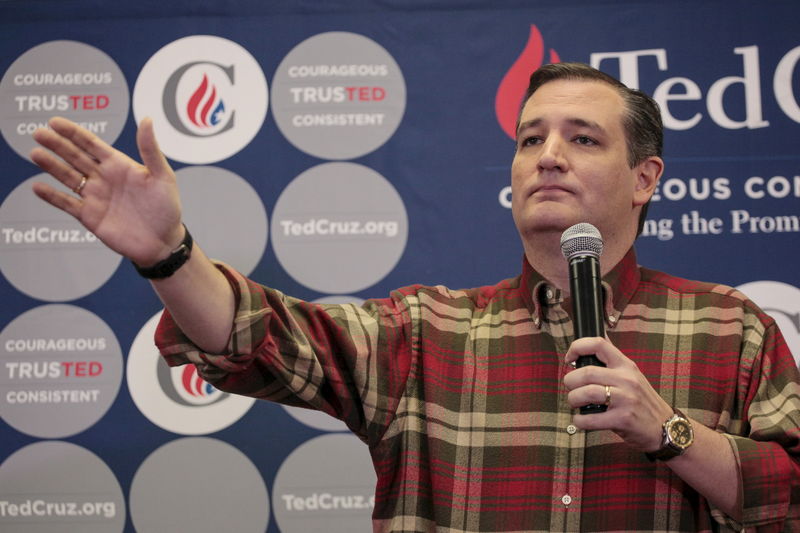Investing.com’s stocks of the week
By Emily Stephenson
WASHINGTON (Reuters) - Republican presidential hopeful Ted Cruz said U.S. leaders should prioritize combating Islamic State over pushing for regime change abroad, as he took a tough stance on militants but maintained his opposition to aggressive overseas intervention.
Cruz, a U.S. senator from Texas, has sought to stake a middle ground between rivals who support more U.S. action in Syria, such as U.S. Senator Marco Rubio of Florida, and non-interventionists who prefer to steer clear of foreign conflicts.
"Nothing that has happened in the last two and a half years has given me any more confidence that intervention in the Syrian civil war is in America's interest," Cruz said on Thursday in a speech at the Heritage Foundation, a think tank in Washington.
"I believe we should focus on the immediate and unambiguous challenge to our security, which is utterly destroying ISIS."
Rubio and Cruz, who are close in opinion polls of the Republican field, have battled over national security and Syria. Rubio has said more radical groups could emerge unless Syrian President Bashar Al-Assad is removed. Cruz said toppling leaders in Libya and elsewhere led to more instability, not less.
But Cruz is well ahead of Rubio in the first state to vote in the Republican race, Iowa, where he topped a key opinion poll this week.
A new Monmouth University poll of 425 Republican voters likely to participate in the February 1 caucuses revealed 24 percent would support Cruz compared with 19 percent for rival Donald Trump. The poll's margin of error was 4.8 percentage points.
Cruz also gained the endorsement of Bob Vander Plaats, head of the Iowa-based Christian group The Family Leader. He holds sway with an influential voting bloc of social conservatives.
"We have found him as a man of deep character, a man that we can fully trust, who has a consistency of convictions, who loves his God, who loves his spouse, and who loves his family," Vander Plaats said of Cruz.
Vander Plaats did not address foreign policy, but it has become a key issue after attacks in Paris and San Bernardino, California, that were tied to or inspired by the Islamic State group. Many Republicans seeking the White House want a tougher approach in the Middle East, including more ground troops and a no-fly zone over Syria.
Rubio told ABC on Thursday that air strikes would not be enough to defeat the militants. He said a ground coalition should be mostly Sunni Arab, but the United States also needed to increase its presence.
Cruz said politicians often viewed ground forces as a display of strength and should instead listen to military experts about what troops are necessary.
Cruz defended his support of legislation approved earlier this year that scaled back intelligence agencies' ability to obtain Americans' phone records, saying U.S. policies could target "bad guys" without infringing on the rights of average citizens.
Rubio voted against that change. He has said it weakened officials' ability to gather intelligence and prevent attacks.
